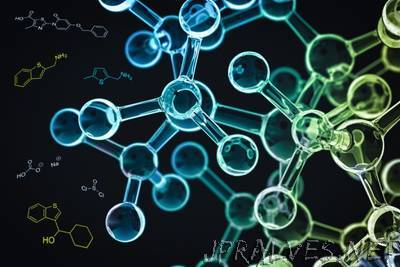
“When organic chemists identify a useful chemical compound — a new drug, for instance — it’s up to chemical engineers to determine how to mass-produce it. There could be 100 different sequences of reactions that yield the same end product. But some of them use cheaper reagents and lower temperatures than others, and perhaps most importantly, some are much easier to run continuously, with technicians occasionally topping up reagents in different reaction chambers. Historically, determining the most efficient and cost-effective way to produce a given molecule has been as much art as science. But MIT researchers are trying to put this process on a more secure empirical footing, with a computer system that’s trained on thousands of examples of experimental reactions and that learns to predict what a reaction’s major products will be. The researchers’ work appears in the American Chemical Society’s journal Central Science. Like all machine-learning systems, theirs presents its results in terms of probabilities. In tests, the system was able to predict a reaction’s major product 72 percent of the time; 87 percent of the time, it ranked the major product among its three most likely results.”
